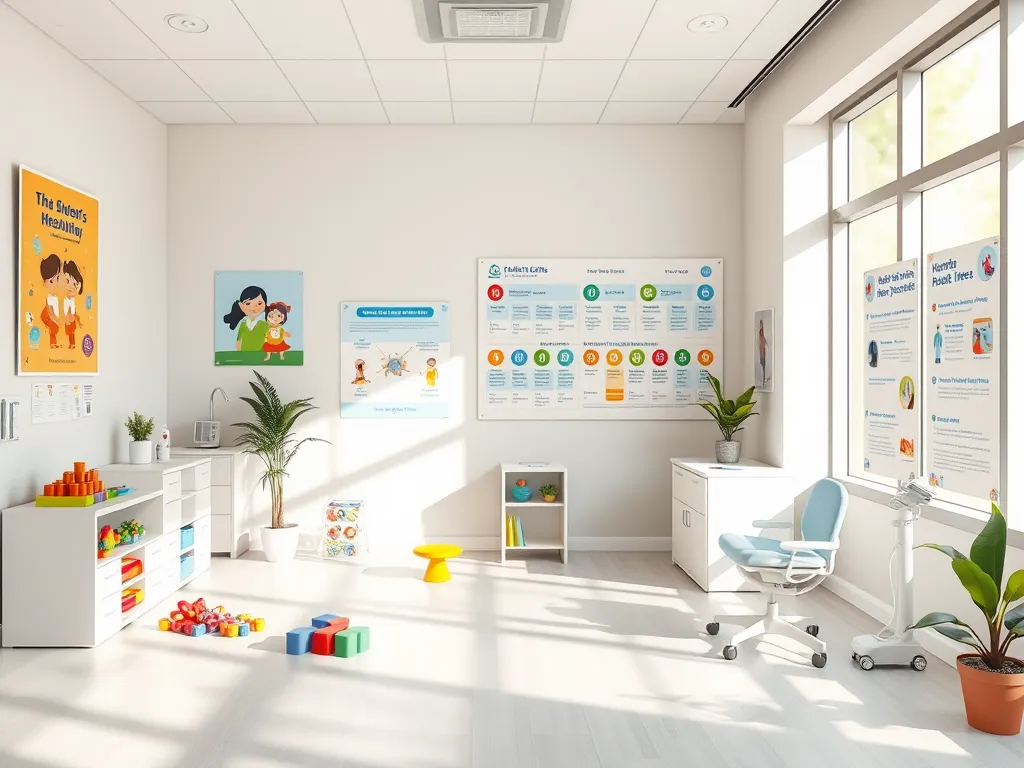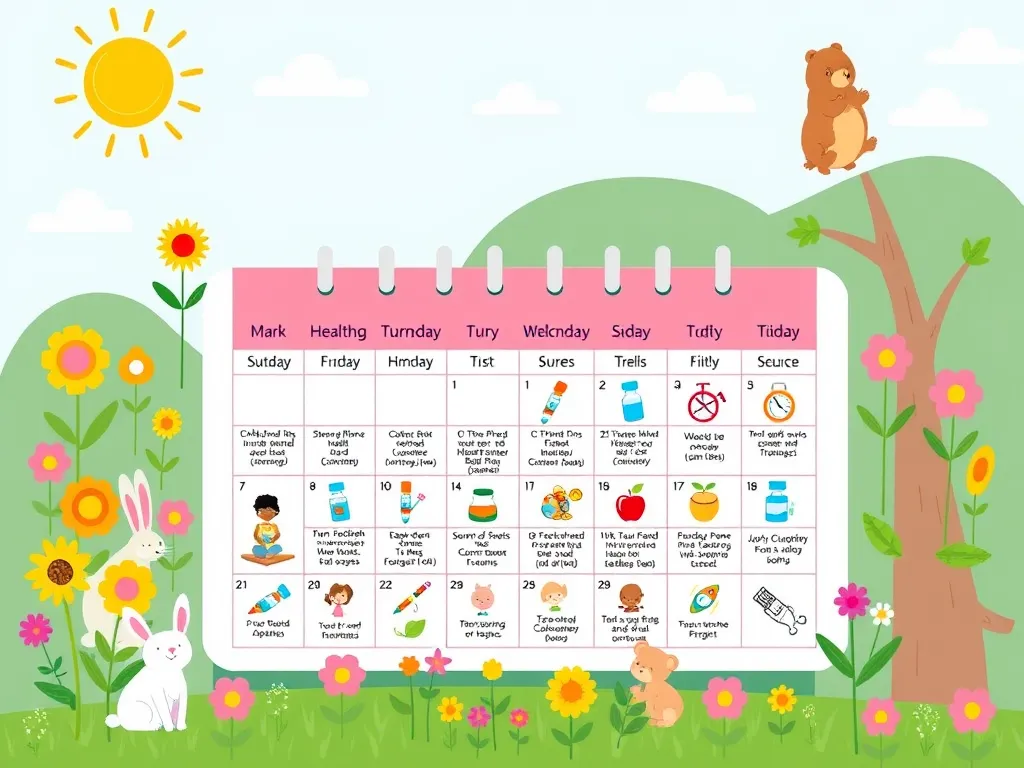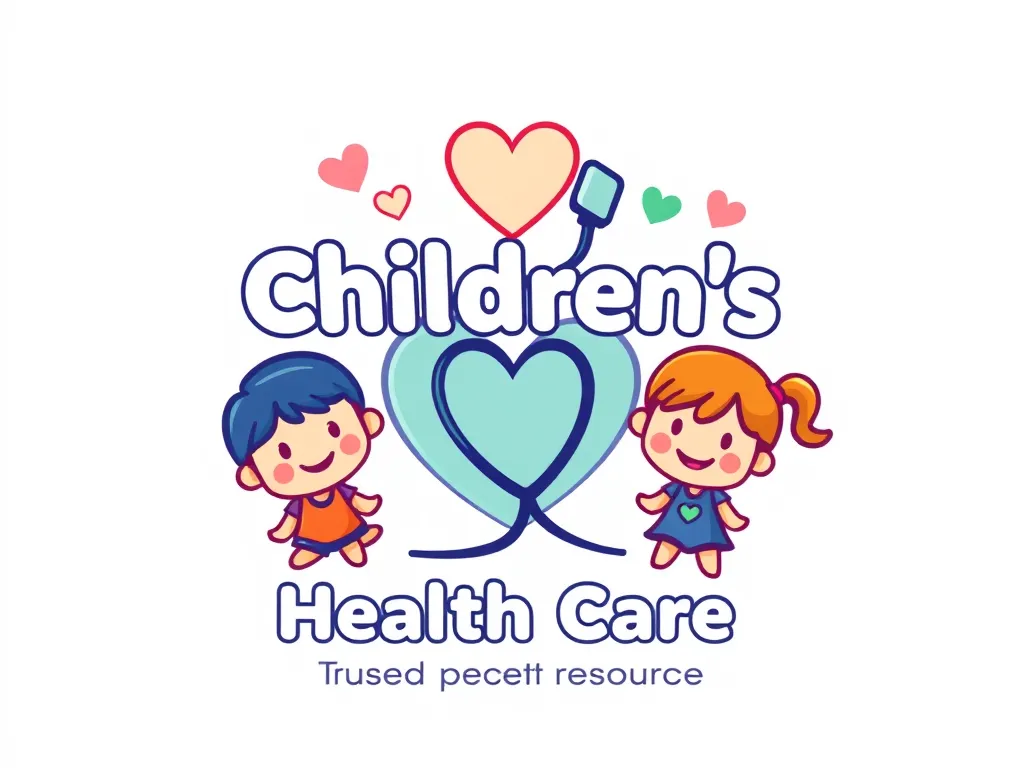Children's Health Care: A Comprehensive Guide for Parents and Caregivers
Children's health care is an essential aspect of ensuring that our youngest members of society grow up healthy, happy, and ready to learn. This area of health care encompasses a wide range of services designed specifically for children, from infancy through adolescence. As parents and caregivers, understanding the intricacies of children's health care can profoundly impact the development and well-being of the child. It's vital to approach children's health care holistically, focusing not just on physical health but also on mental, emotional, and social well-being.
A fundamental component of Children's Health Care is nutrition. Good nutrition is crucial for growth, development, and overall health in children. A balanced diet, rich in essential nutrients, forms the foundation of a child's health care. Poor nutrition can lead to various health problems, both immediately and later in life. Parents and caregivers should prioritize providing nutritious meals and snacks to support their children's health and foster lifelong healthy eating habits.
Preventive care is another critical aspect of Children's Health Care. Regular check-ups, vaccinations, and screenings play a vital role in identifying potential health issues before they become significant problems. Preventive measures not only protect children from diseases but also help to monitor their overall development. Parents are encouraged to keep up with vaccination schedules to safeguard their children against serious illnesses and maintain their health security.
Mental health is equally important in the realm of Children's Health Care. The emotional and psychological well-being of children can significantly impact their physical health and vice versa. Parents must be aware of signs of anxiety, depression, and stress in their children and provide supportive environments that foster emotional well-being. Mental health resources should be readily available to both children and their families to navigate these challenges effectively.
Chronic conditions also fall under the umbrella of Children's Health Care. Managing chronic illnesses such as asthma, diabetes, and ADHD requires continuous medical attention, tailored care plans, and support systems for both the child and their family. Understanding how to care for a child with a chronic condition is crucial for their long-term well-being and can empower families to handle these challenges proactively.
Nutrition in Children's Health Care
Nutrition plays a foundational role in children's health care, significantly impacting their growth and development. A balanced diet is vital for offering the necessary nutrients that support children's physical and mental health. Children require various nutrients like proteins, carbohydrates, vitamins, and fats in adequate amounts to flourish and maintain energy levels throughout their active days.
The impact of nutrition on child development cannot be overstated. Good nutrition during formative years shapes cognitive function, emotional regulation, and overall health. It helps in developing strong immune systems, reduces the risk of chronic diseases, and fosters better academic performance. Establishing healthy eating habits early on sets the stage for a lifetime of positive health outcomes.
Common nutritional deficiencies in kids can include iron, calcium, Vitamin D, and fiber. Identifying these deficiencies early is crucial since they can lead to serious health issues, including anemia or decreased bone health. Regular check-ups can help guide parents in addressing these deficiencies and ensuring their children receive the necessary nutrition.
Encouraging healthy eating habits in children can be achieved through various strategies, such as involving them in grocery shopping and meal preparation or providing a variety of nutritious foods. Parents should also serve as role models by making healthy choices themselves, creating a positive and engaging mealtime atmosphere, and promoting an appreciation for diverse foods.
Preventive Care in Pediatrics
Preventive care is a cornerstone of Children's Health Care, encompassing vaccinations and well-child check-ups. Vaccination schedules are carefully designed to protect children from serious and potentially life-threatening illnesses. Staying up-to-date with these vaccines is crucial for community health, contributing to herd immunity and preventing outbreaks.
Screenings and check-ups for children allow healthcare providers to evaluate developmental milestones, monitor growth, and detect any health issues early on. Regular visits enable personalized guidance for parents on nutrition, physical activity, and essential health topics, supporting sustainable developmental progress.
Preventing common childhood illnesses involves educating parents about hygiene practices, proper nutrition, and recognizing early signs of illness. Routine measures, such as handwashing and staying current with vaccinations, are fundamental to minimizing the incidence of these illnesses in children.
The role of parents in preventive care cannot be understated. Parents should advocate for their children's health by keeping track of appointments, understanding preventive measures, and actively participating in discussions with healthcare providers. This involvement empowers parents to take charge of their children's health care needs proactively.
Mental Health in Children
Recognizing signs of anxiety and depression in children is vital for their overall well-being. Symptoms may manifest as changes in behavior, mood swings, social withdrawal, or academic struggles. Awareness and open communication with children about their feelings can help parents identify and address these issues promptly.
The impact of stress on child health is significant and can lead to a deterioration of both physical and mental health. Chronic stress can affect concentration, sleep patterns, and emotional regulation, making it essential for parents to create a supportive home environment and offer coping strategies to their children.
Promoting emotional well-being in kids involves teaching them resilience, coping skills, and emotional intelligence. Engaging in family activities, encouraging outdoor play, and fostering opportunities for social interaction can significantly enhance children's mental health and emotional stability.
Resources for mental health support are essential for families dealing with mental health challenges. Parents should educate themselves about local resources, including school counselors, therapists, and support groups, enabling them to access the help needed to navigate mental health concerns effectively.
Chronic Conditions in Pediatrics
Managing asthma in children requires a comprehensive care plan involving medication, monitoring of symptoms, and avoiding triggers. Parents play a vital role in ensuring that their child follows the prescribed treatment regimen and learns how to manage their condition effectively.
Diabetes care for kids involves teaching them about nutrition, monitoring blood sugar levels, and maintaining a balanced lifestyle. Collaboration with healthcare providers ensures that children receive personalized care and education about managing their condition, leading to improved outcomes and quality of life.
Understanding ADHD and its treatment options, such as behavioral therapy and medication, is critical for parents. Early diagnosis and tailored intervention strategies can significantly enhance the child's learning experience and social interactions, ensuring they develop coping mechanisms for their symptoms.
Support for families with chronic illness is crucial, as managing a child's chronic condition can be overwhelming. Parents should seek support networks, educational resources, and counseling services to foster resilience and effective coping strategies within the family dynamic.
Pediatric Emergencies and First Aid
Common pediatric emergencies, such as choking, burns, or allergic reactions, require prompt action. Parents must be aware of these situations and prepared to react appropriately by administering basic first aid or calling for emergency assistance when necessary.
First aid essentials for parents include knowing how to perform CPR, treating minor injuries, and providing care during common emergencies. Familiarity with first aid techniques can empower parents to act quickly and confidently in emergencies, ensuring their children's safety.
Knowing when to seek emergency care for children can be a challenging decision for parents. Recognizing signs of severe illness or injury, such as difficulty breathing, unresponsiveness, or uncontrolled bleeding, necessitates immediate medical attention to prevent serious outcomes.
Preventing accidents and injuries at home is fundamental in Children's Health Care. Parents should implement safety measures such as childproofing homes, ensuring proper use of safety gear during play, and supervising children in potentially hazardous situations to minimize risks and ensure a safe environment.
Growth and Development Milestones
Understanding developmental milestones in infancy is essential as these benchmarks guide parents in monitoring their child's growth. Milestones such as motor skills, language development, and social interactions provide insight into a child's overall development and help identify potential delays early on.
Tracking growth in preschoolers involves regular updates from pediatric check-ups, focusing on height and weight percentiles, as well as evaluating emotional and cognitive development. Creating a supportive environment that encourages exploration and learning aids developmental advancements during this crucial stage.
Social and emotional development in children is intertwined with their physical growth. Parents should engage children in social activities and encourage emotional expression through activities such as storytelling and group play, helping develop essential socialization skills and emotional intelligence.
Interventions for developmental delays can include early therapy, special education, or family support programs. Identifying delays early allows parents to access the appropriate resources to help children achieve their potential and navigate their developmental journeys effectively.







